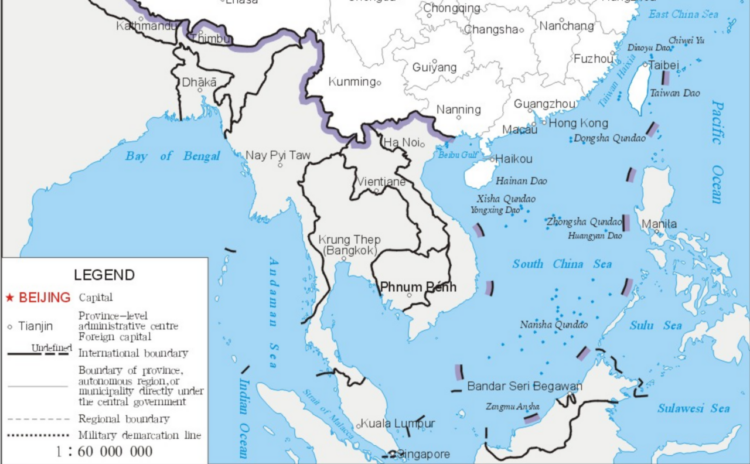Since the release of its so-called “standard map,” China has been questioned by various countries, with many of them lodging protests against the nation. Japan is the latest country to join the others in rejecting Beijing’s map.
Senkaku Islands Dispute
According to Matsuno Hirokazu, chief cabinet secretary of Japan, the map’s description of the Senkaku Islands is based on Beijing’s claims. Hirokazu said the islands are unquestionably an “inherent part” of Japan’s territory, in terms of both history and international law, according to Japanese public broadcaster NHK World.
He said that Japan has lodged a strong protest with Beijing via diplomatic channels and has demanded an immediate retraction of the description on the map.
However, a Chinese foreign ministry spokesperson dismissed the Japanese government’s protest over a description of Japan’s Senkaku Islands in a new map released by Beijing, according to NHK. Notably, Japan controls the islands. They are disputed by China and Taiwan.
Opposition to the New Map
Apart from India, it is the United States, Philippines, Malaysia, Vietnam, and Taiwan that have lodged strong protests against China so far. Indonesia said, “Comply with UNCLOS”, whereas Taiwan said the map “can’t change our country’s existence”. Nepal, too, reacted to it and asked Beijing to “respect” its 2020 Map.
On August 31, the Indonesian foreign minister Retno Marsudi emphasised that the drawing of territorial lines, including the 2023 Edition of the Standard Map of China, must be in accordance with the UN Convention on the Law of the Sea 1982, the Indonesian News Agency Antara reported.
Regarding the release of the so-called “Standard Map” by China, the Russian envoy to India, Denis Alipov, had recently said it “doesn’t change anything on the ground.”
China, on August 28, released the 2023 edition of its “standard map”, incorporating the country’s claims over the nine-dash line, thereby laying claim to a large part of the South China Sea. Vietnam, the Philippines, Malaysia, and Brunei have all claims over the South China Sea areas.
India’s Strong Protest
India lodged a strong protest against China, rejecting claims made by Beijing in the so-called “standard map” and saying they have no basis to claim India’s territory. The Ministry of External Affairs (MEA) said such steps from the Chinese side would only complicate the resolution of the boundary question.
Earlier, External Affairs Minister S Jaishankar said it is an “old habit” of China to stake claim on territories that do not belong to them. He dismissed Beijing’s “absurd claims” and said “putting out a map does not mean anything.”
“China has put out maps with territories (that are) not theirs. (It is an) old habit. Just by putting out maps with parts of India, this does not change in anything,” Jaishankar said, adding, “Our government is very clear about what our territories are. Making absurd claims does not make other people’s territories yours,” Jaishankar said.
However, in an attempt to appear unfazed, Beijing termed its publication of the so-called “standard map” as a ‘routine practice’ and asked the concerned nations to view it in an “objective and rational light”.




















Comments